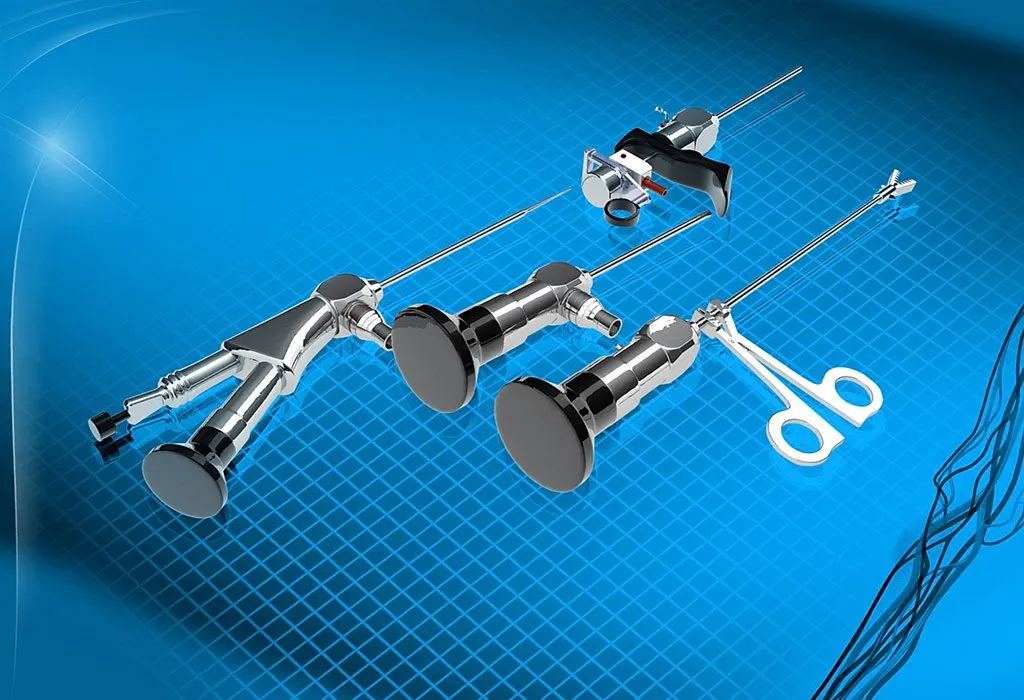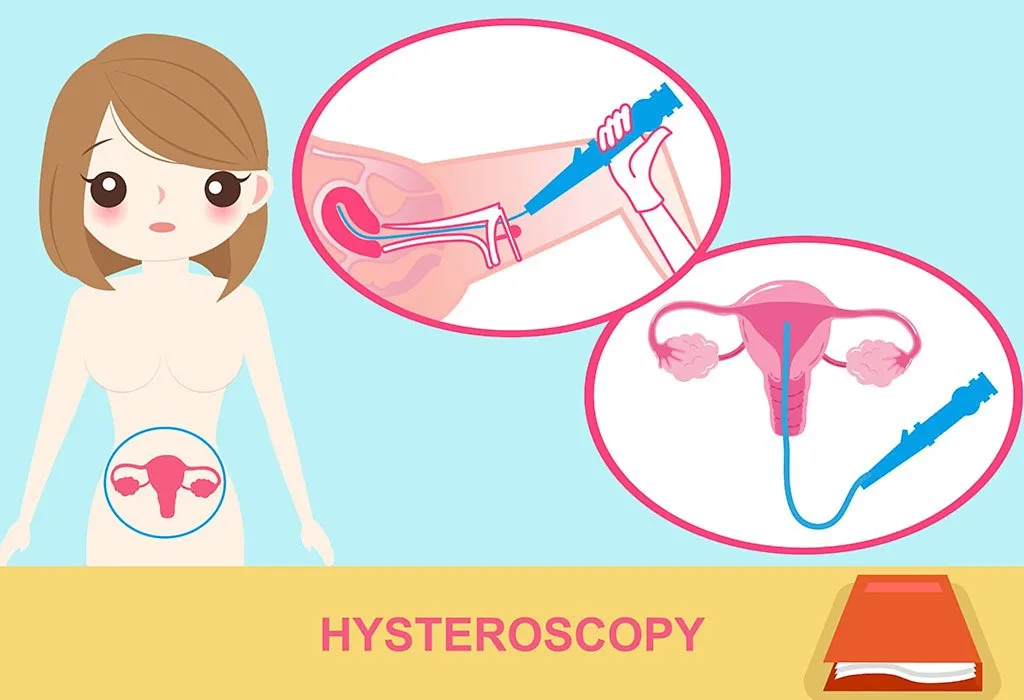Hysteroscopy for Infertility – How Does It Improve Fertility?

Many women tend to suffer from various kinds of health complications that may lead to infertility, and sometimes, these complications can be challenging to diagnose. However, there are certain procedures that can help the doctor identify the issues and suggest correct treatment for various infertility cases. According to the NHS Inform, hysteroscopy is one such procedure that helps identify problems in the uterus, like infertility issues, birth defects, unusual vaginal bleeding, recurrent miscarriages, uterine fibroids, and more (1). Women’s health is of utmost importance when it comes to fertility, as a foetus needs a fertile environment to grow in. Hysteroscopy for infertility increases the chances of conception. Read this article to learn more about hysteroscopy and infertility in detail.
What Is Hysteroscopy?
The ACOG states that hysteroscopy is a minimally invasive medical procedure that involves the examination of a woman’s uterus and cervix by making use of a thin, lighted telescope-like instrument called a hysteroscope, which is inserted in a woman’s vagina (2). This procedure not only helps in diagnosing various uterine complications but also in rectifying them.
What Is a Hysteroscope?
A hysteroscope is a narrow medical instrument that comes with a camera and an integrated light source. This aids the doctor in visually examining the uterine cavity and cervix by inserting it into the woman’s vagina. The camera takes the images and helps the doctor assess if any complications exist and whether or not any corrective procedure is required.
Why Do You Need to Undergo This Procedure?
Johns Hopkins Medicine and Cleveland Clinic suggest that your doctor may recommend you to undergo hysteroscopy in the following circumstances (3) (4):
- If you are experiencing any uterine bleeding.
- If your pap smear tests are not normal.
- If you are bleeding after menopause.
- If you require the removal of the endometrial lining.
- If you require the removal of small tissue for biopsy.
- If you wish to get small birth control inserts in your fallopian tube.
- If your doctor needs to examine and remove polyps, fibroids, or scarring.
Does Hysteroscopy Improve Fertility?
In the present scenario where women are battling with more and more infertility issues, you may want to know the role of hysteroscopy in infertility. Well, it cannot be defined in black or white. Women who suffer from issues such as endometrial polyps, submucous fibroids, adhesion, or septum may face infertility issues because of difficulty in fertilization or implantation of the egg. Sometimes, these issues may be rectified by performing hysteroscopy and may increase a woman’s chances of getting pregnant; however, this may not be true in all cases. So, although hysteroscopy infertility treatments are beneficial and increase the chances of conception, they do not guarantee 100 per cent conception.
How to Prepare for the Hysteroscopy Procedure?
Your doctor will recommend and explain the procedure if you need one. If you have any kind of medicinal allergies or bleeding disorders or you are pregnant, inform your doctor. Don’t hide anything from your doctor. Your doctor will assess your health to check whether you are ready to undergo this procedure. It will be a good idea to dress in comfortable clothes. You may ask someone to accompany you as you will be sedated for the procedure and may find it difficult to go back home on your own.
What Happens During the Procedure?
In most cases, you may be allowed to go home on the same day. However, if your doctor feels the need, you may have to stay overnight, too. The intricacy of the procedure depends on your health and any complications you may be suffering.
Following are the course of events that are likely to happen during the procedure (5):
- You will have to change into hospital clothes.
- The hospital staff would request you to empty your bladder for the procedure.
- You will be told to lie down on your back with your legs wide open.
- Your doctor will put an IV and clean your vagina with an antiseptic solution.
- A hysteroscope will be inserted into your vagina once it is dilated.
- For a better view, your doctor will push some gas or saline solution through the hysteroscope to expand your uterus.
- Your doctor will take pictures and assess the problems in the uterus or the cervix.
- In case a corrective procedure needs to be performed such as removal of fibroids, your doctor may insert the tools through the hysteroscope.
- Your doctor will take out the hysteroscope after the procedure is finished.
What to Expect After the Procedure?
You may be allowed to go home after the procedure is over. However, in case you were given general anaesthesia, your doctor may keep you under observation for some time and will monitor your heart rate along with your blood pressure. You may experience mild cramping or bleeding for a few days after the procedure. You may feel bloated or gassy, too, for a day or two after the surgery. If you are wondering how long after hysteroscopy you can get pregnant, then we advise that you avoid sexual intercourse for at least two weeks to let your body recover from the procedure.
The Effectiveness of Hysteroscopy in Increasing the Chances of Conception
Does hysteroscopy increase fertility? Hysteroscopy involves removing the probable triggers of infertility, such as polyps, fibroids, septum, adhesions, abnormal bleeding, etc., thus it may increase the chances of pregnancy. However, there is not enough scientific evidence available to prove the same.
What Are the Possible Risks and Complications?
Although hysteroscopy is a safe procedure, sometimes complications may arise. Some complications that may arise are discussed below:
1. Infections
The procedure involves passing a hysteroscope through a woman’s vagina, which harbours many kinds of bacteria. The instrument may carry bacteria from the vagina to the uterus and may cause infections.
2. Excessive Bleeding
Hysteroscopy is an invasive procedure and thus sometimes may lead to excessive bleeding, too.
4. Fluid Overload
The body usually absorbs the saline water used for uterine distension, but if not absorbed, it may lead to life-threatening complications (6). However, this may happen in rare cases.
5. Uterine Perforation
Uterine perforation or a hole in the uterus may happen; though the chances are rare if it happens, your doctor will be required to perform additional corrective surgery (6).
6. Damage to the Internal Organs
This may happen if uterine perforation has occurred, and thus, it may further damage other internal organs. If it remains undetected, it could lead to internal bleeding.
Menstrual Cycle After Hysteroscopy
Hysteroscopy may affect your menstrual cycle, where some woman may experience delay others may have it earlier than their usual time. You may also experience heavy bleeding, and your cycle may be longer than usual too, but it may not affect your ovulation. All women are different and thus they may experience different cycles.
FAQs
1. What are the benefits of hysteroscopy?
The benefits of hysteroscopy are not limited or hidden. This expert-recommended practice is minimally invasive, provides accurate diagnoses, deals with infertility caused by uterine issues, and offers minimal hospital stays.
2. What are other uses of hysteroscopy?
Besides finding infertility issues, hysteroscopy is also used to diagnose recurrent miscarriage or abnormal uterine bleeding, perform endometrial ablation, find a misplaced intrauterine device (IUD), and remove scarring caused by surgery or infection.
3. What are the risks of hysteroscopy?
MedlinePlus suggests that a hysteroscopy is a pretty safe procedure (7). However, the procedure, like most surgical procedures, may pose a risk of:
- Blood loss
- Infection
- Normal risks from anaesthesia
- Injury to pelvic organs and tissue
- Tear in the uterus
4. Is hysteroscopy better than other procedures?
Hysteroscopy is a gold-standard method for evaluating and treating intrauterine pathology (6). It is by far better than other procedures like hysterosalpingograms (HSG) and sonohysterograms which are less accurate in determining certain conditions.
Hysteroscopy is known to treat infertility issues; however, if you are considering getting a hysteroscopy done, you should talk to your doctor and know your options. Getting personal guidance for your issues will help a better evaluation and treatment options.
References/Resources:
1. Hysteroscopy; NHS Inform; https://www.nhsinform.scot/tests-and-treatments/non-surgical-procedures/hysteroscopy/
2. Hysteroscopy; ACOG; https://www.acog.org/womens-health/faqs/hysteroscopy
3. Hysteroscopy; Johns Hopkins Medicine; https://www.hopkinsmedicine.org/health/treatment-tests-and-therapies/hysteroscopy
4. Hysteroscopy; Cleveland Clinic; https://my.clevelandclinic.org/health/treatments/10142-hysteroscopy
5. Hysteroscopy; NHS; https://www.nhs.uk/conditions/hysteroscopy/
6. Moore. J. F, Carugno. J; Hysteroscopy; StatPearls [Internet].; NCBI; https://www.ncbi.nlm.nih.gov/books/NBK564345/
7. Hysteroscopy; MedlinePlus; https://medlineplus.gov/lab-tests/hysteroscopy/
Also Read:
Best Ayurvedic Treatment to Cure Infertility
Laparoscopy – Treatment to Improve Infertility
In Vitro Fertilization (IVF) for Infertility Treatment
Intrauterine Insemination (IUI) Process for Infertility Treatment
Was This Article Helpful?
Parenting is a huge responsibility, for you as a caregiver, but also for us as a parenting content platform. We understand that and take our responsibility of creating credible content seriously. FirstCry Parenting articles are written and published only after extensive research using factually sound references to deliver quality content that is accurate, validated by experts, and completely reliable. To understand how we go about creating content that is credible, read our editorial policy here.





































